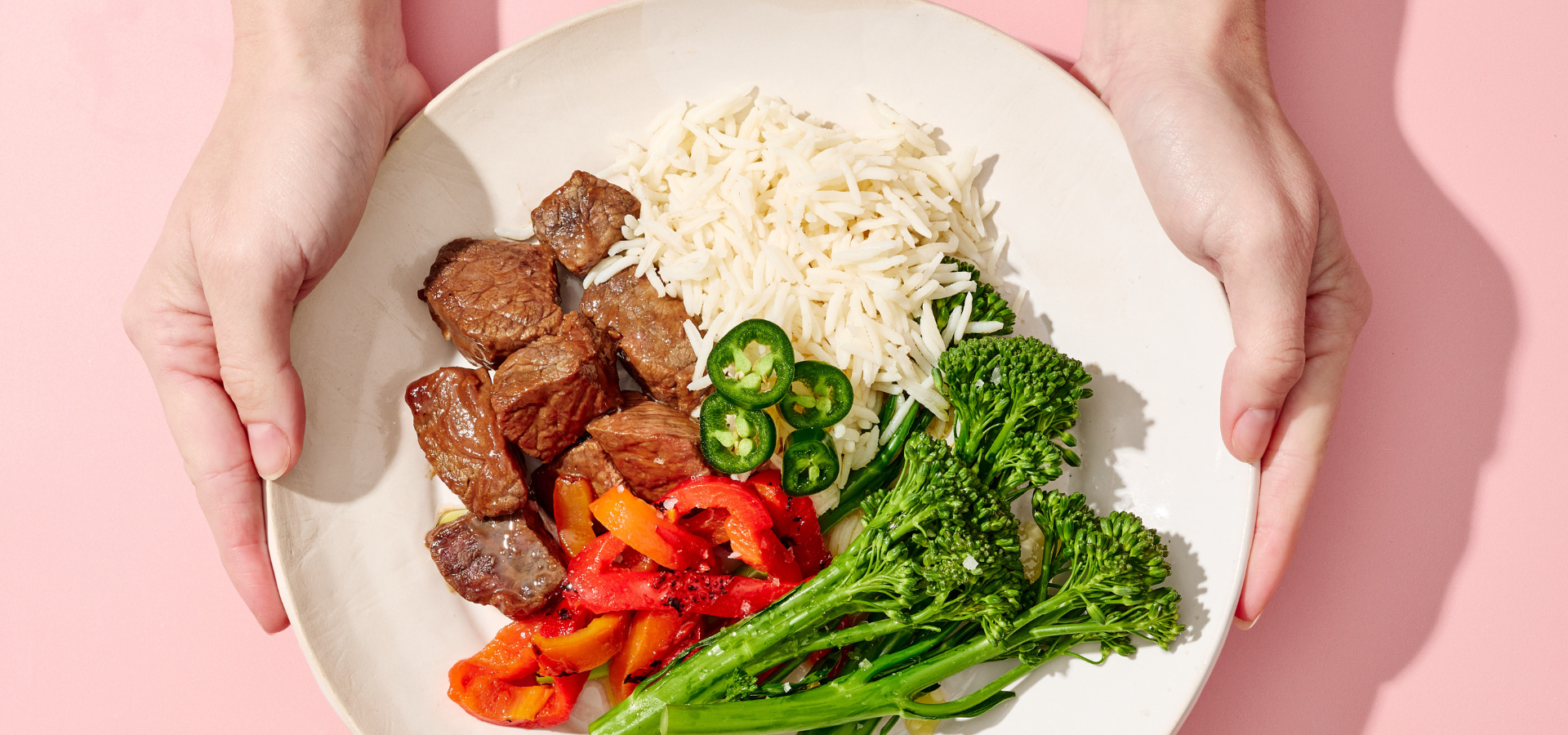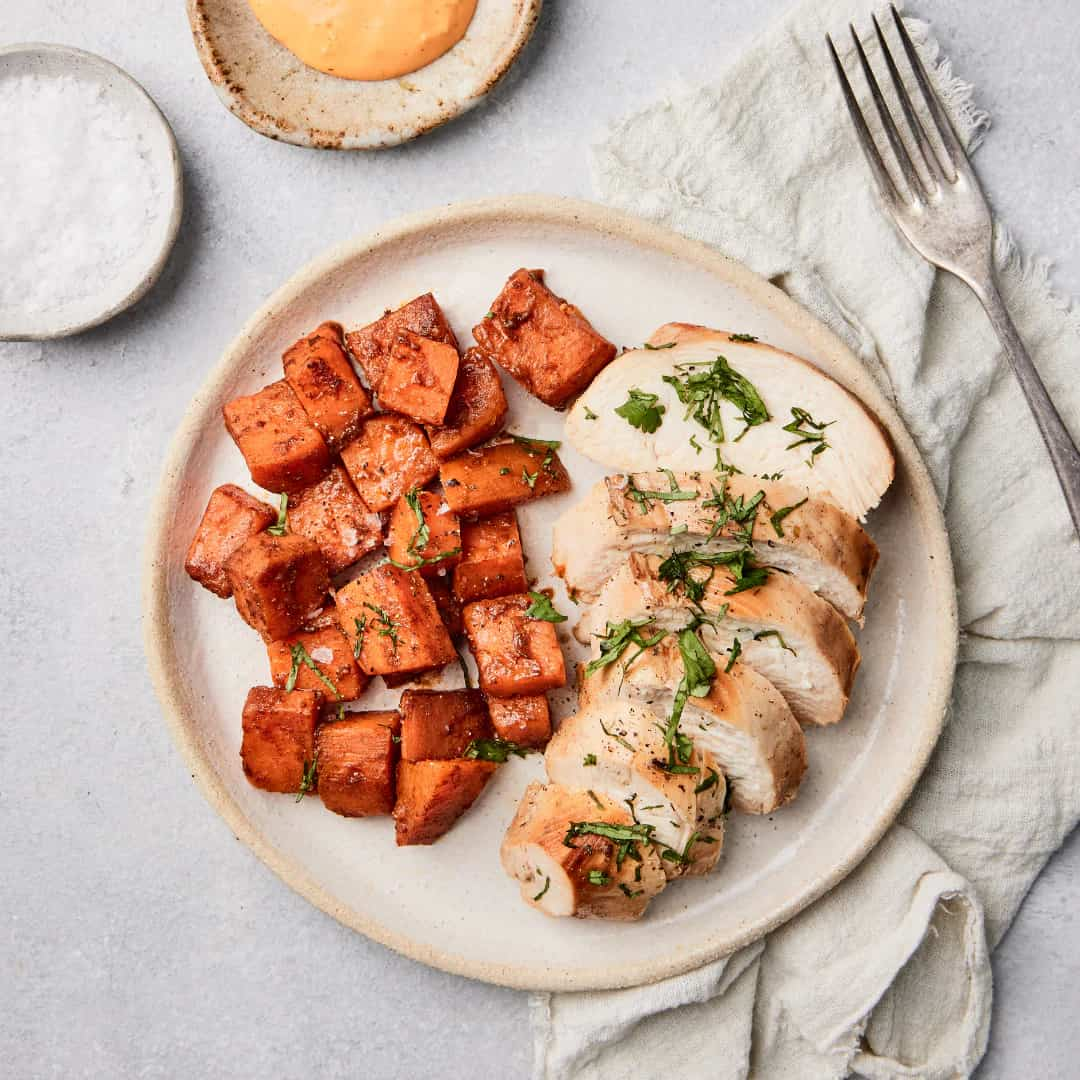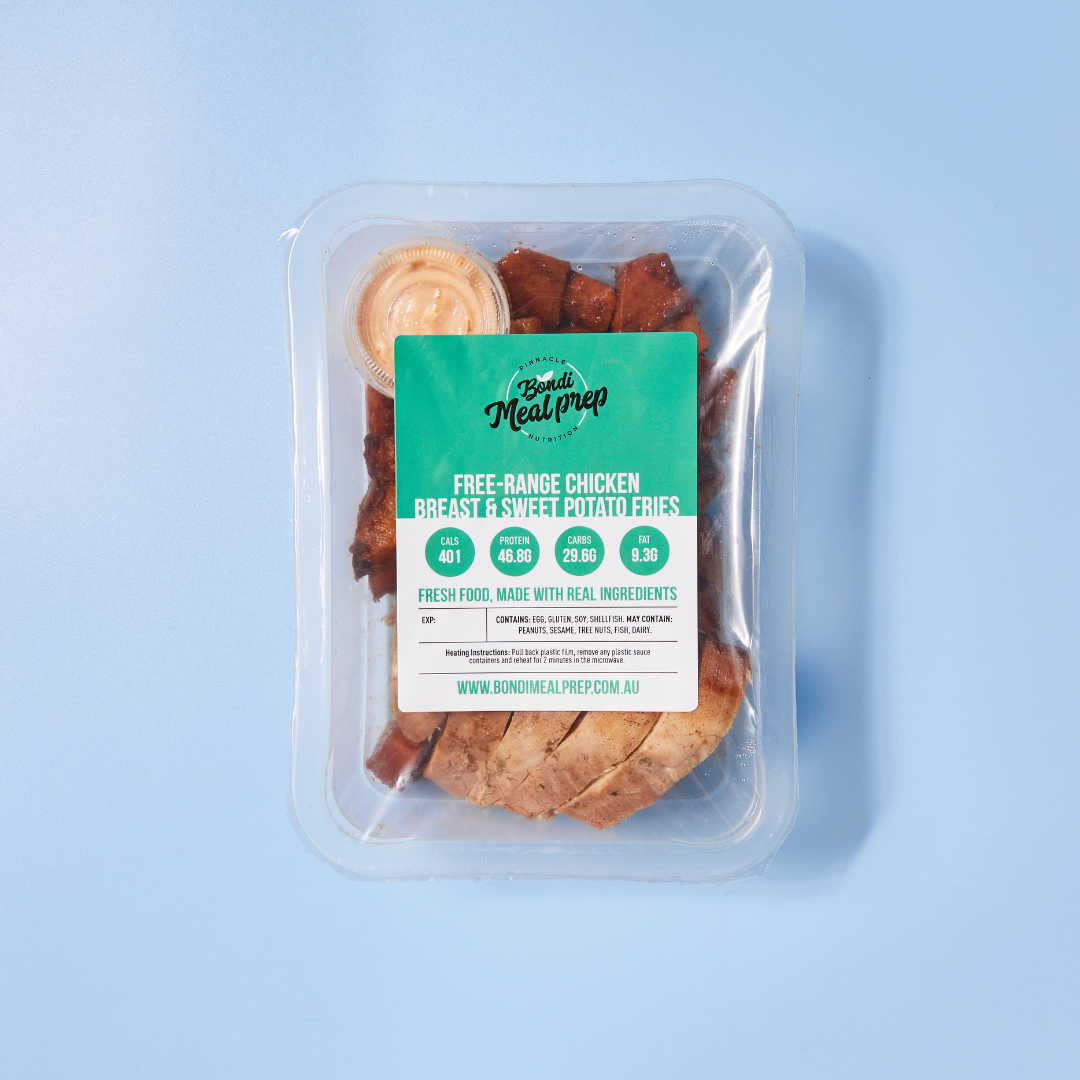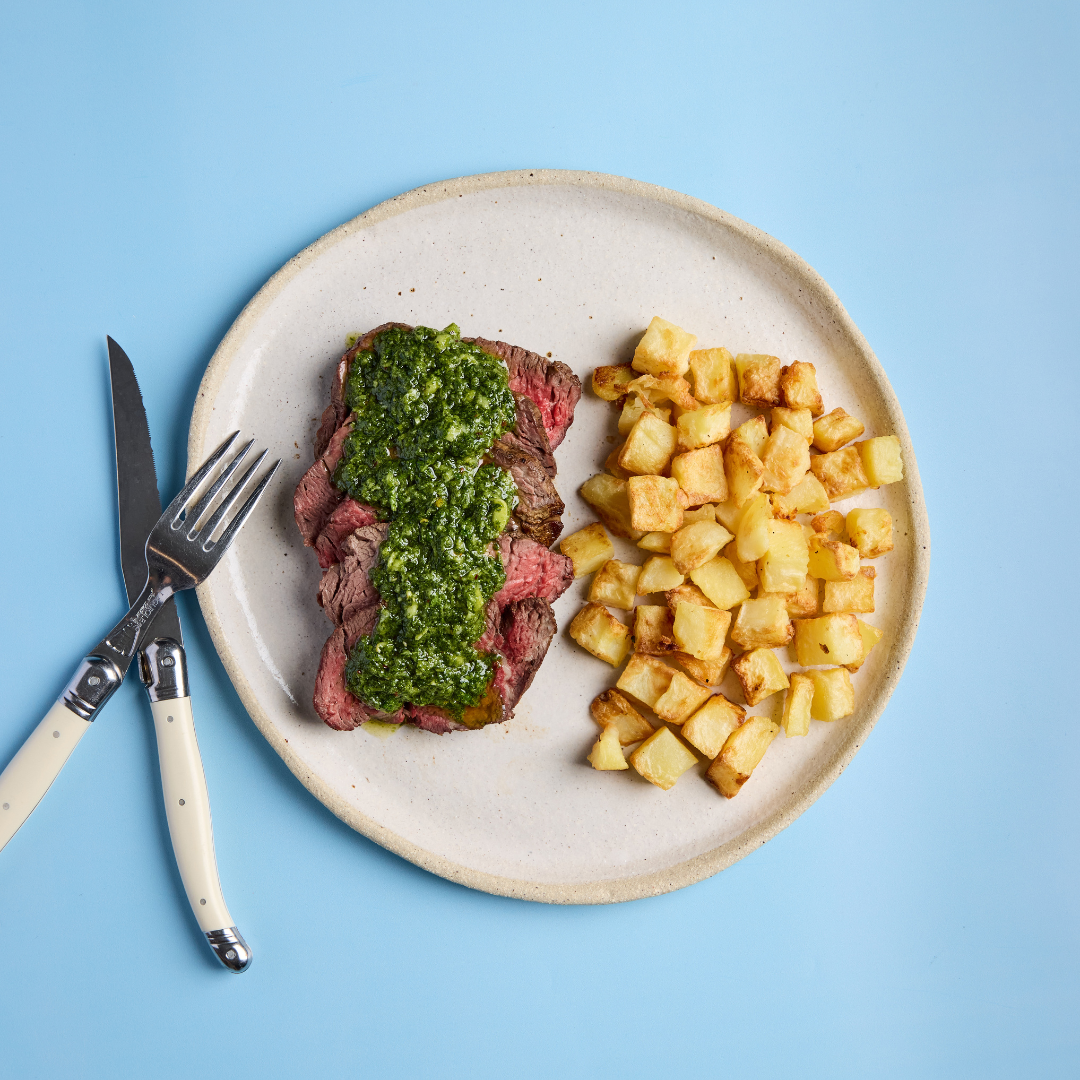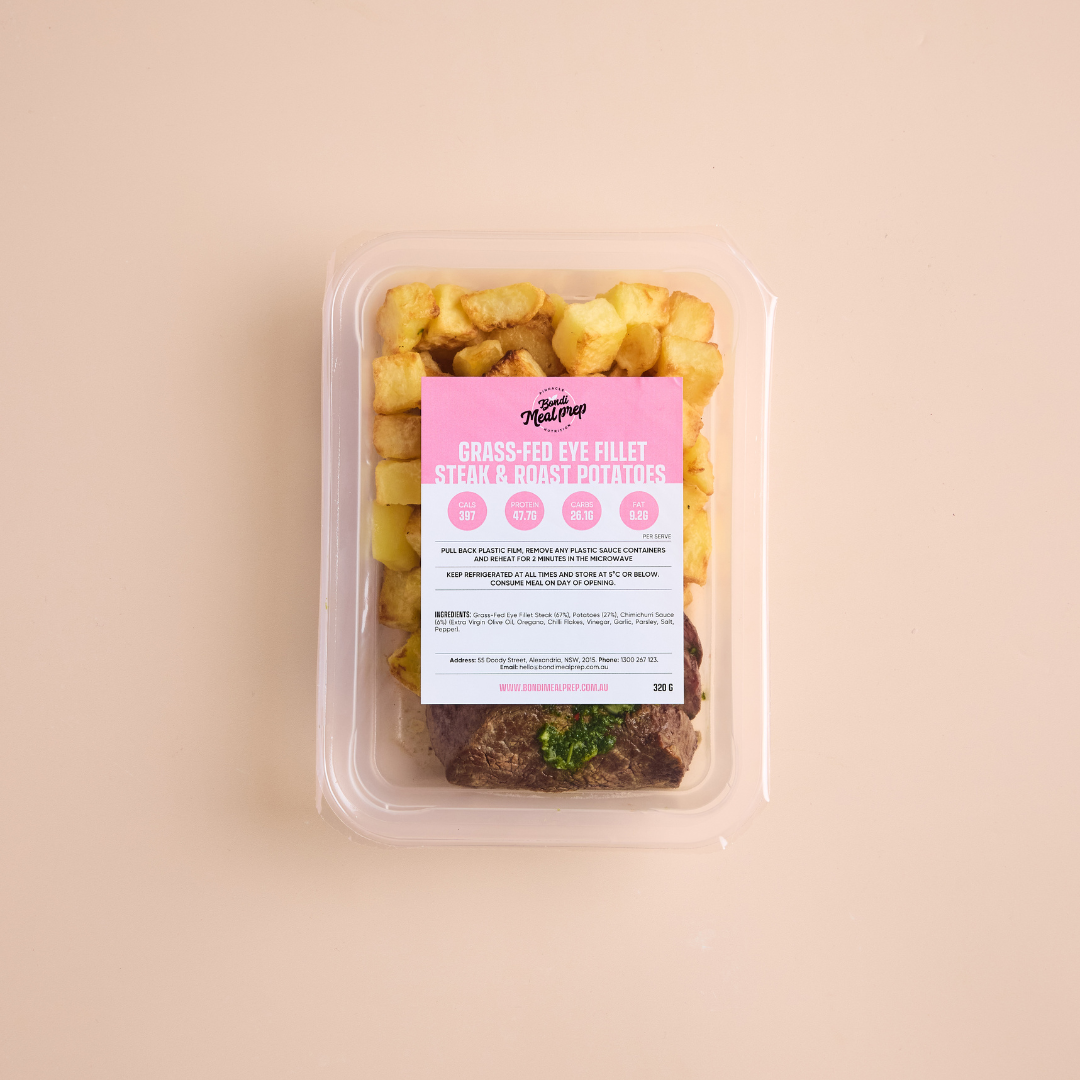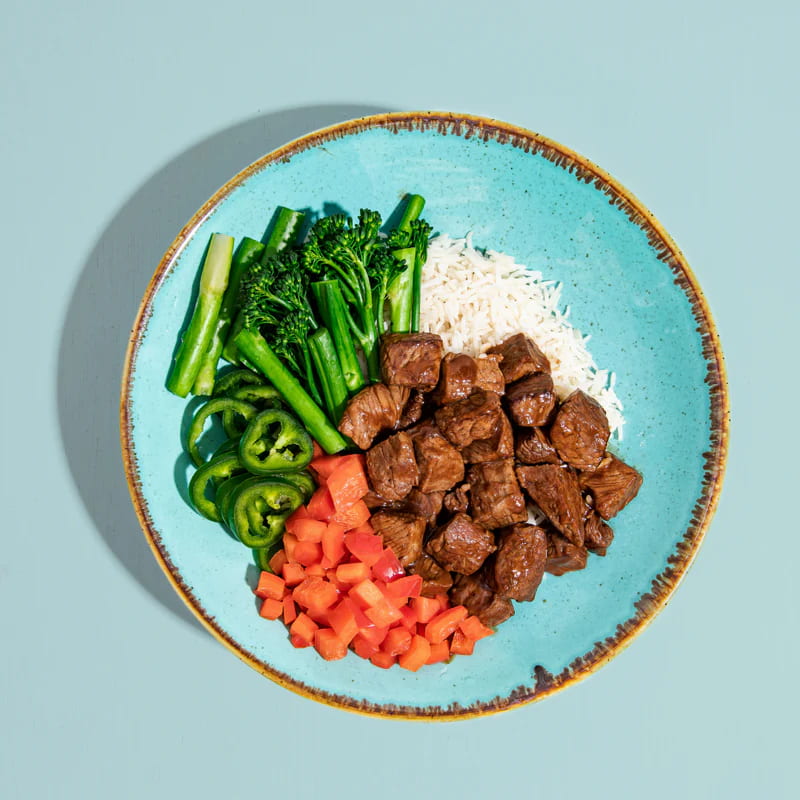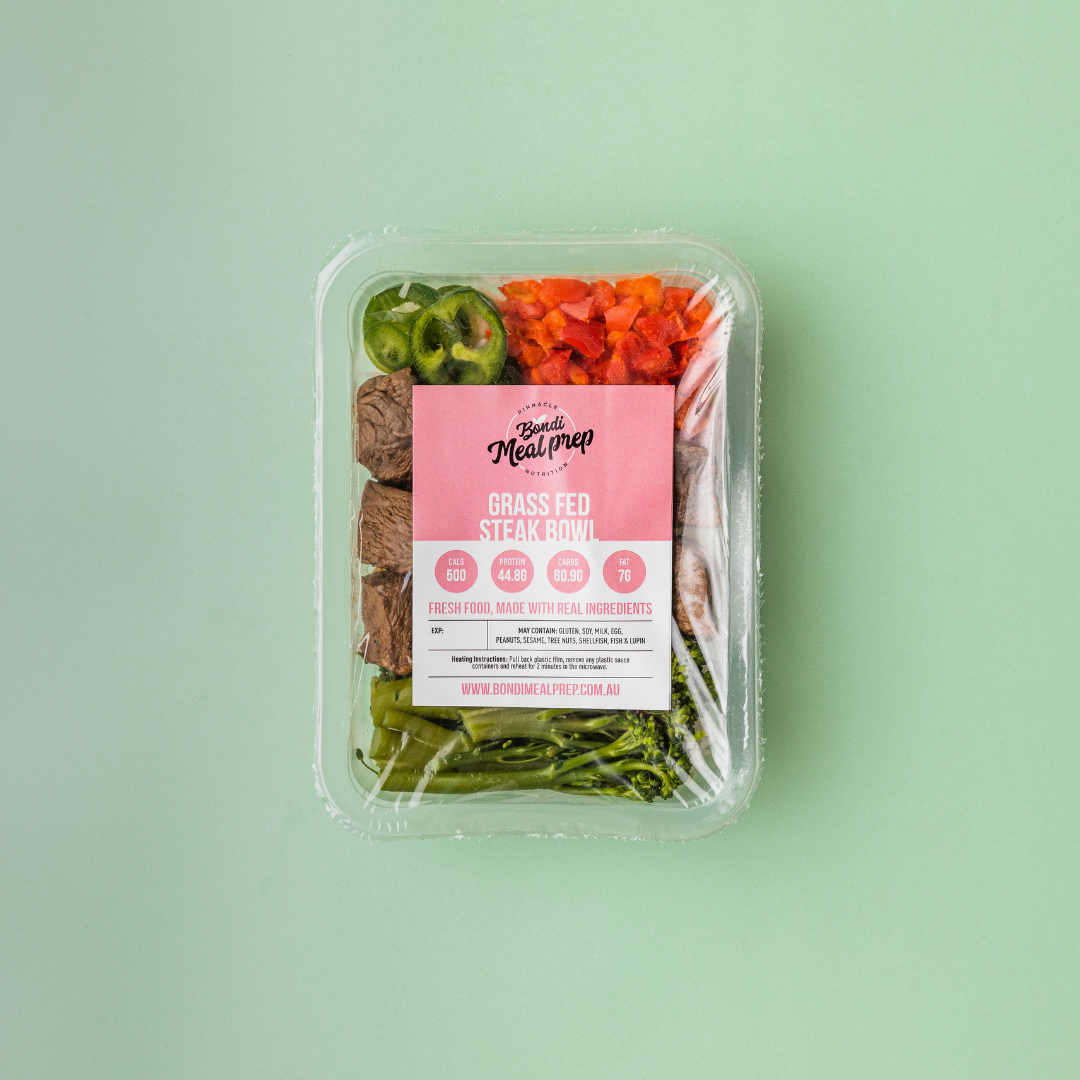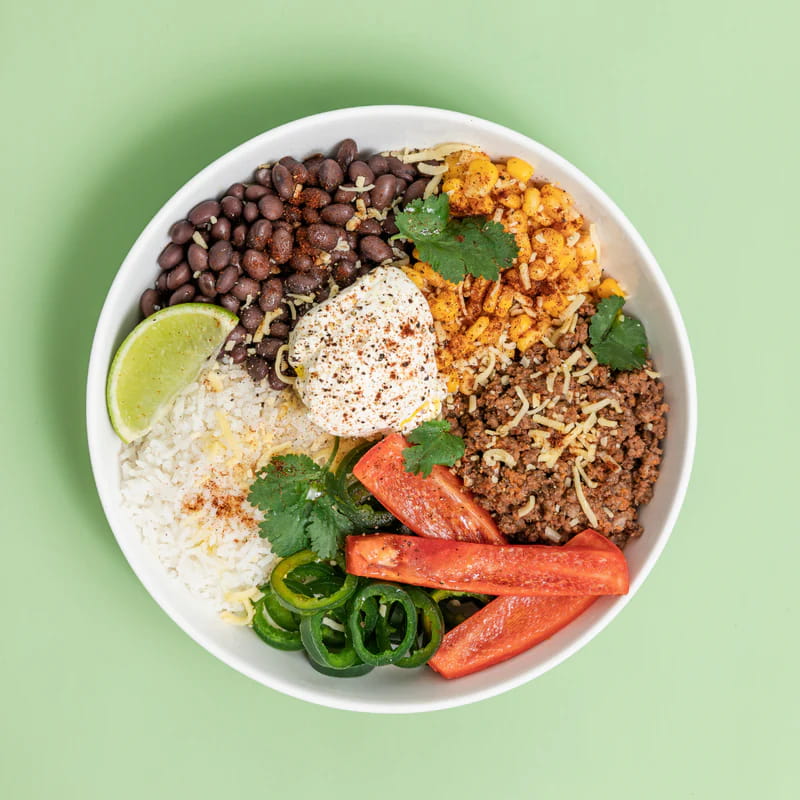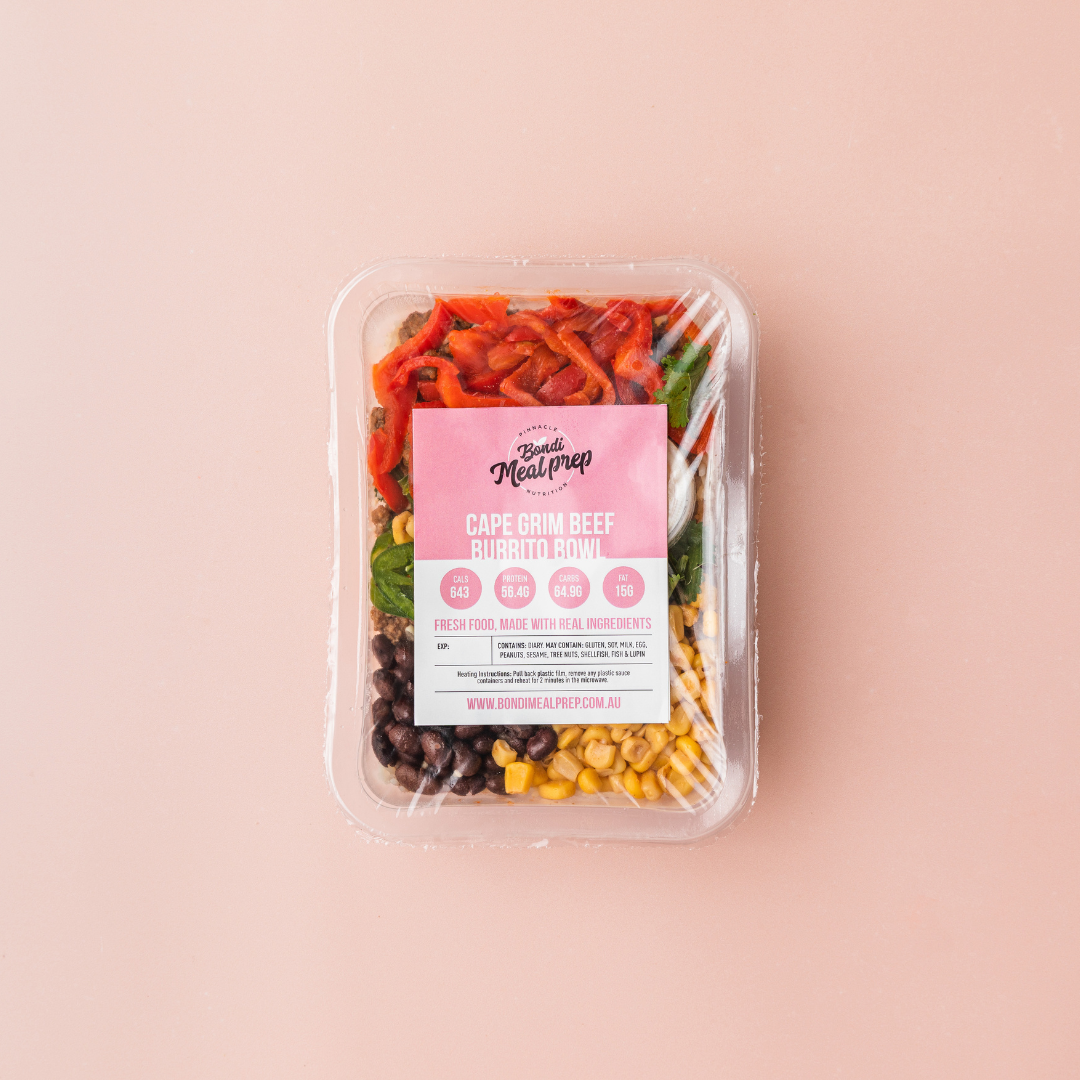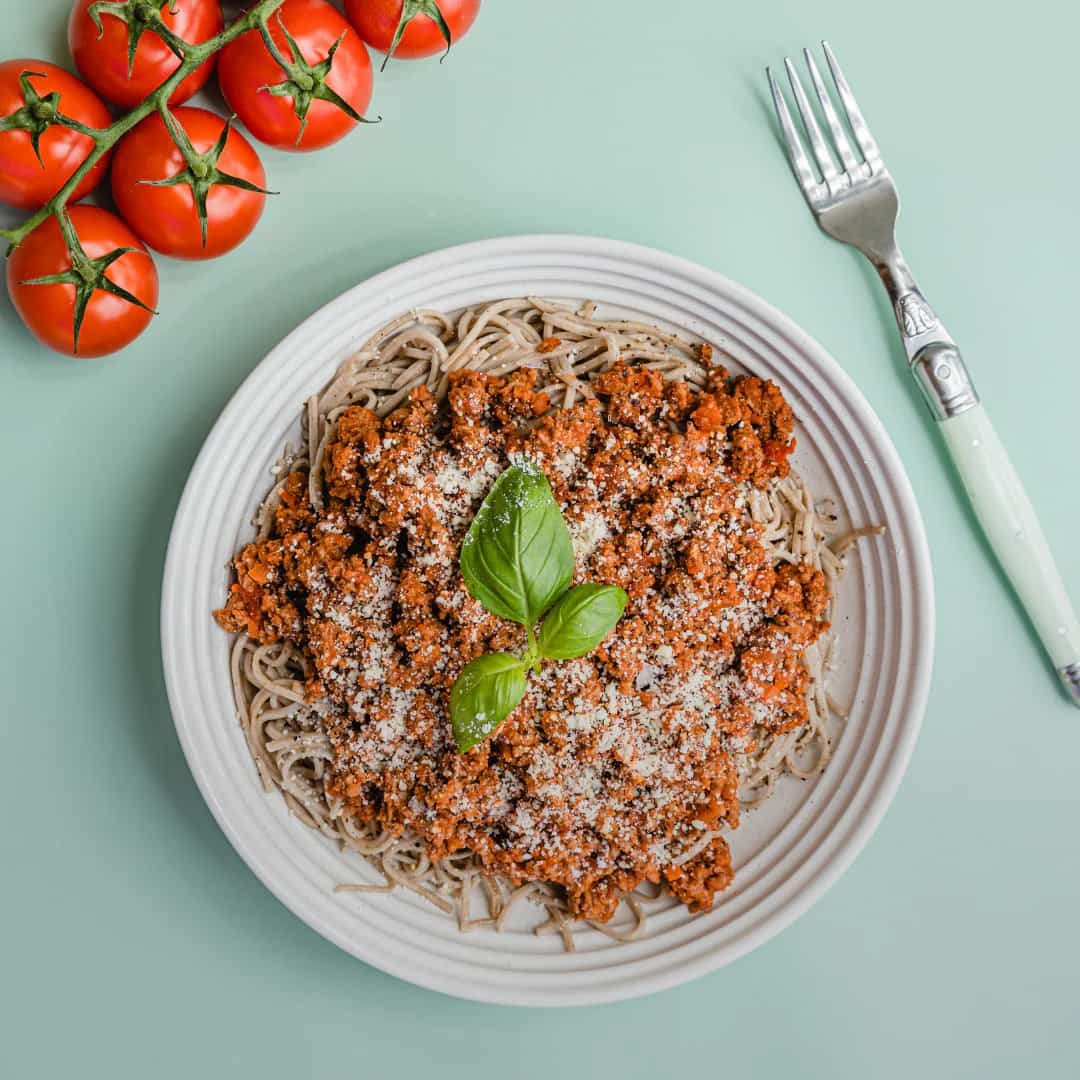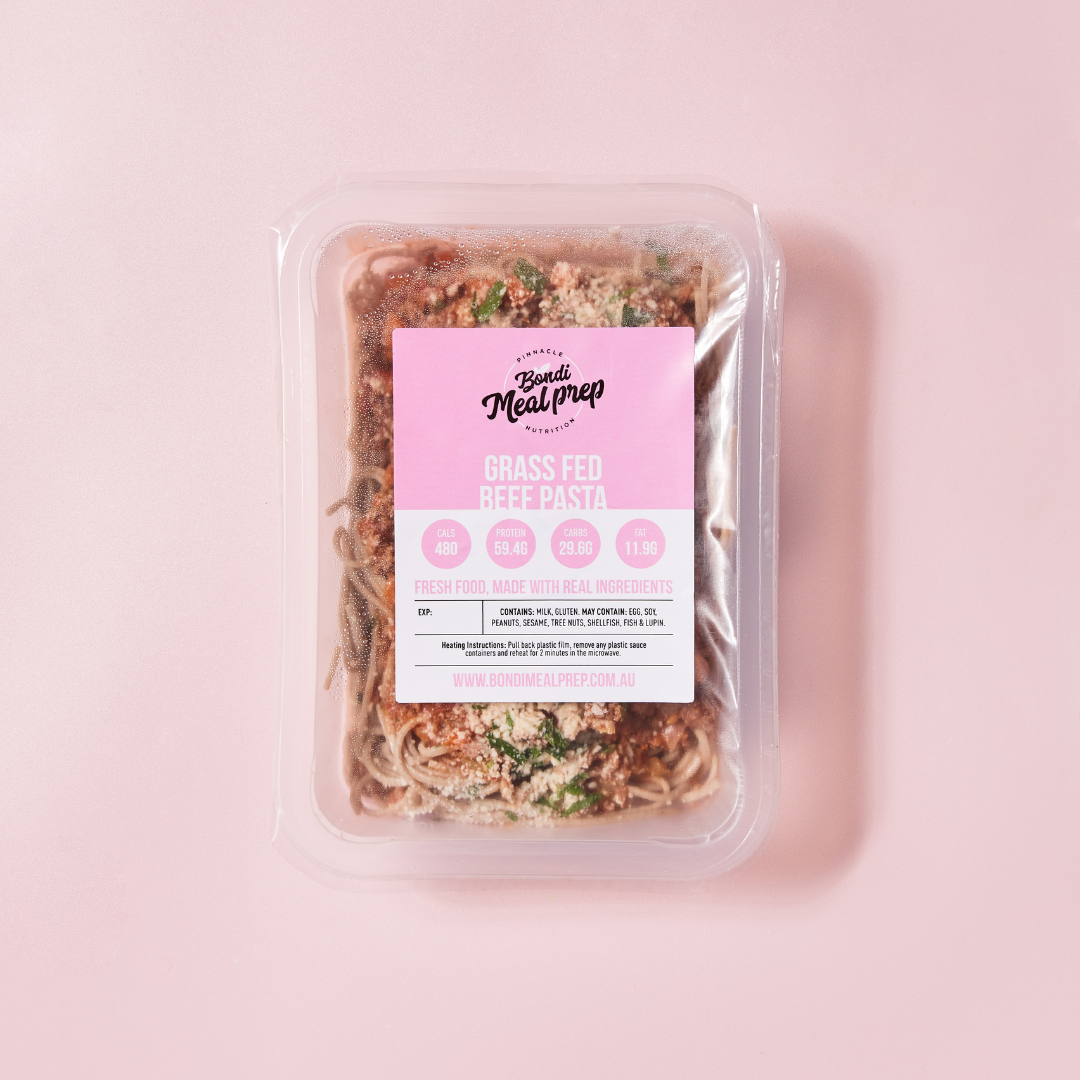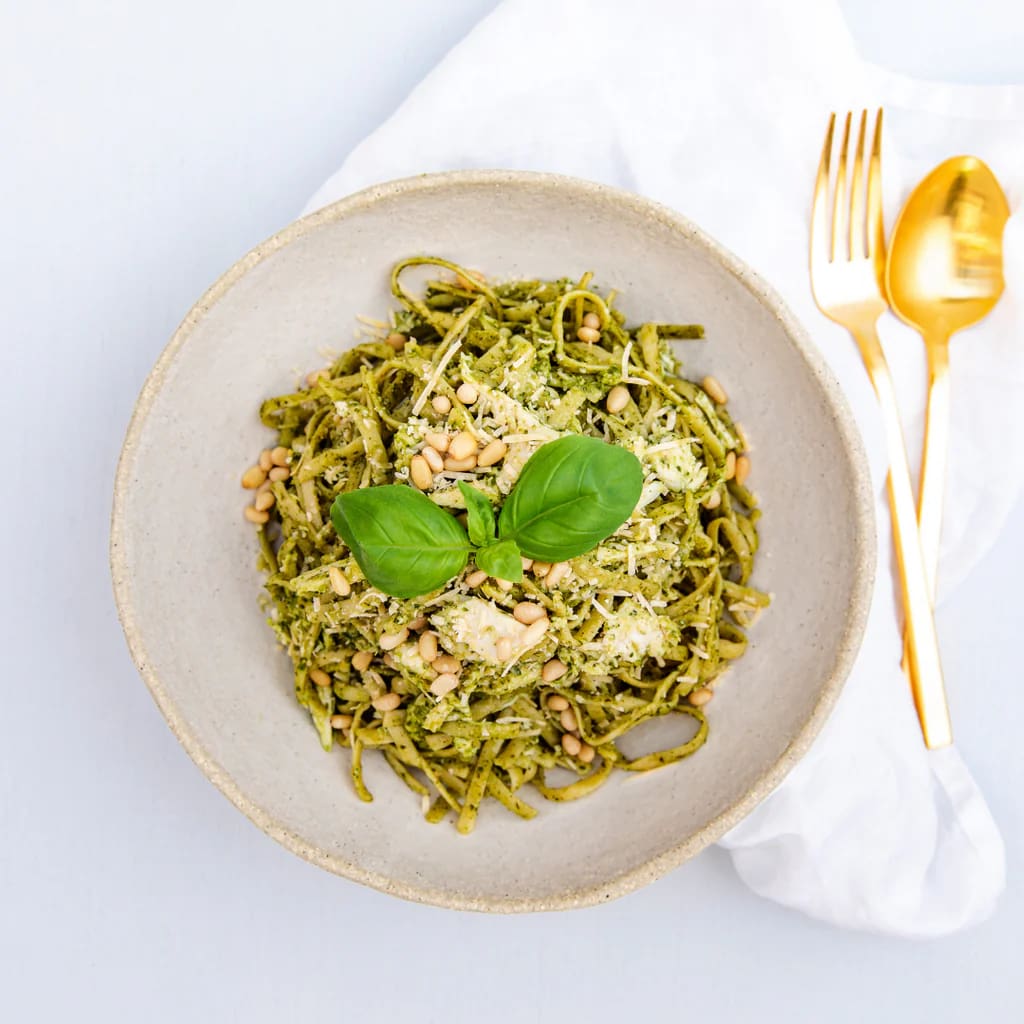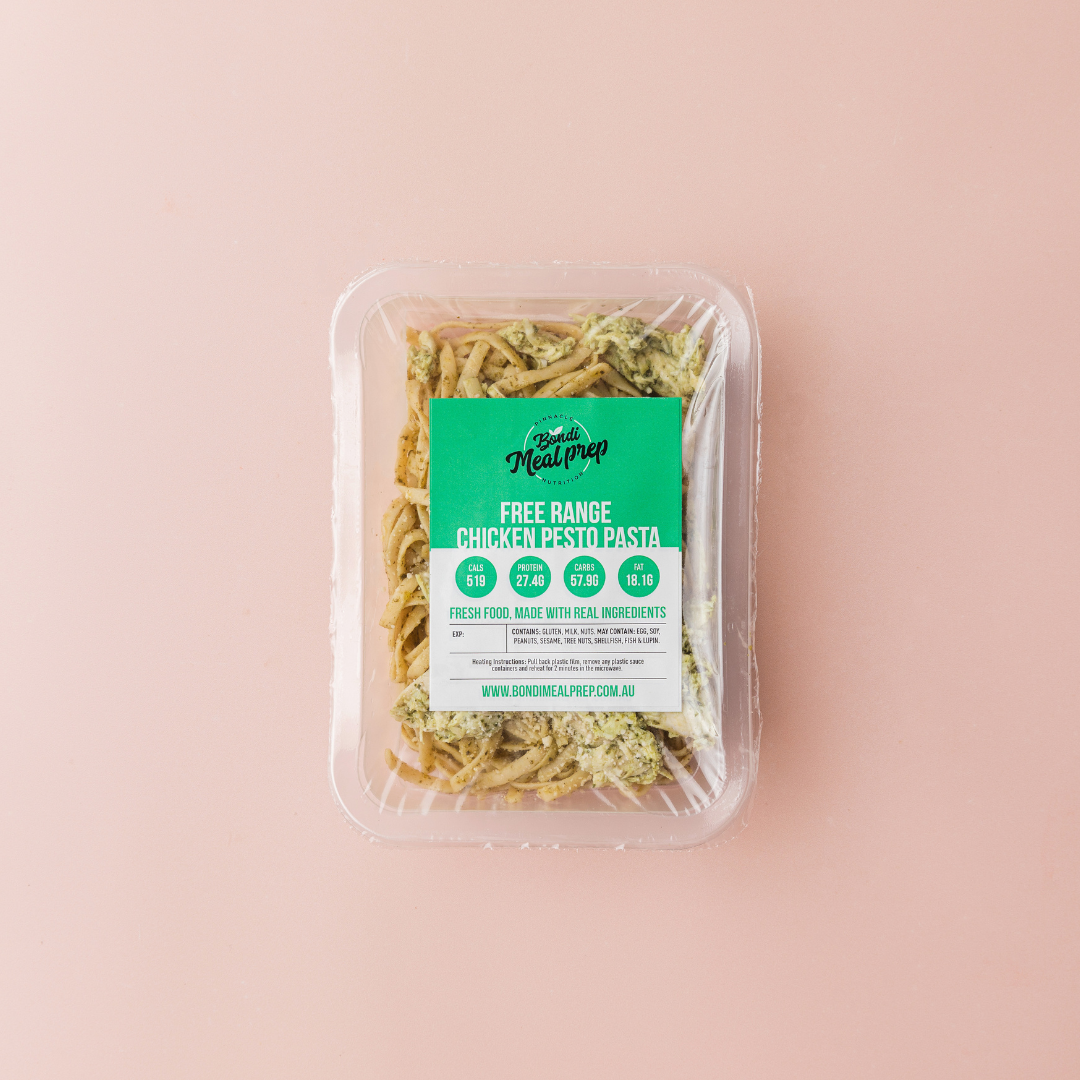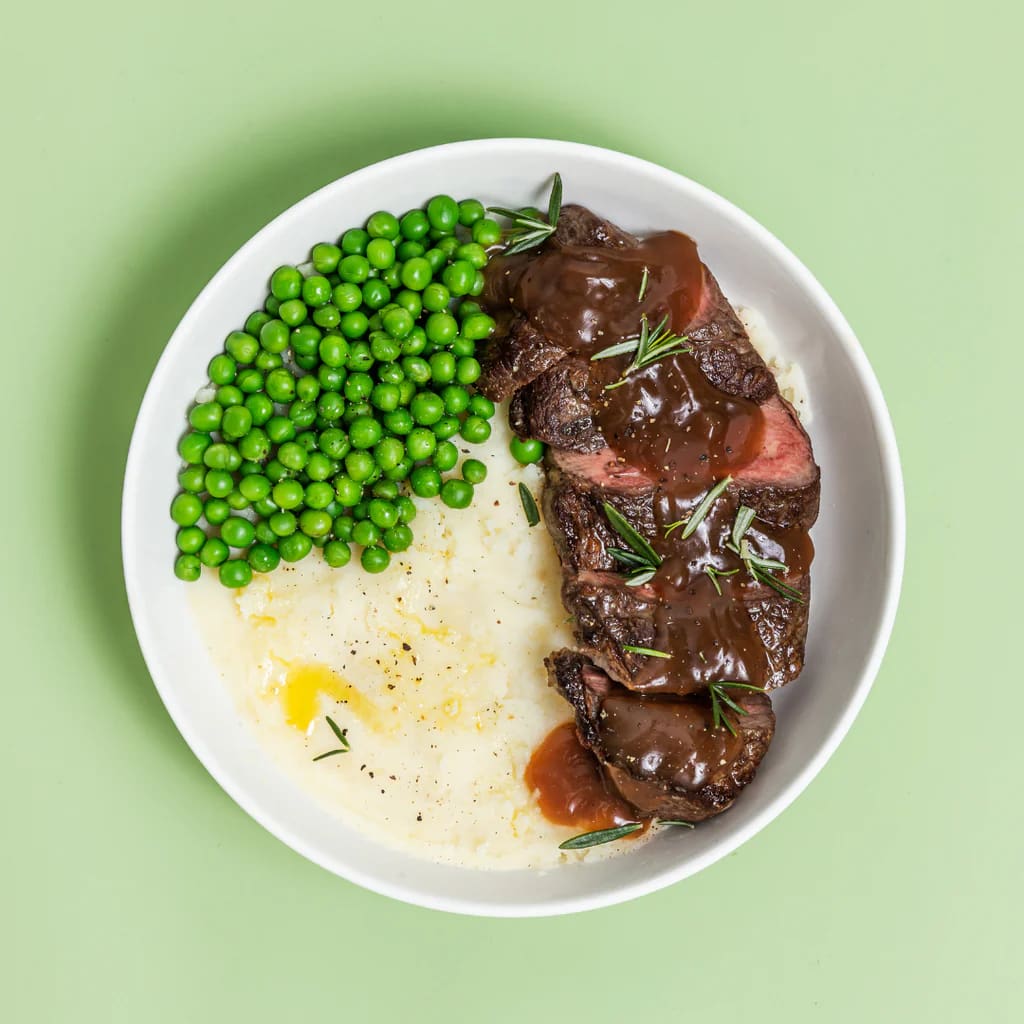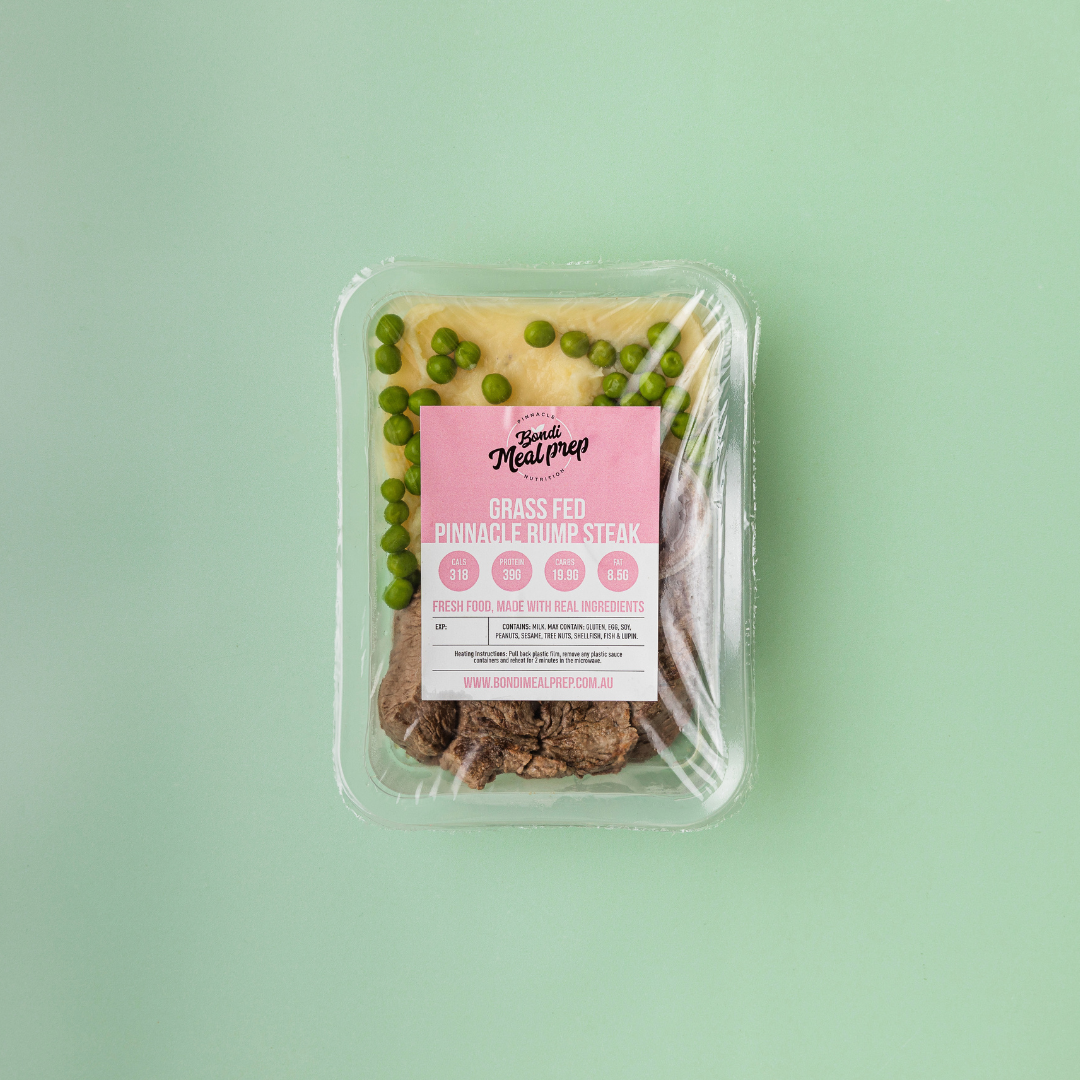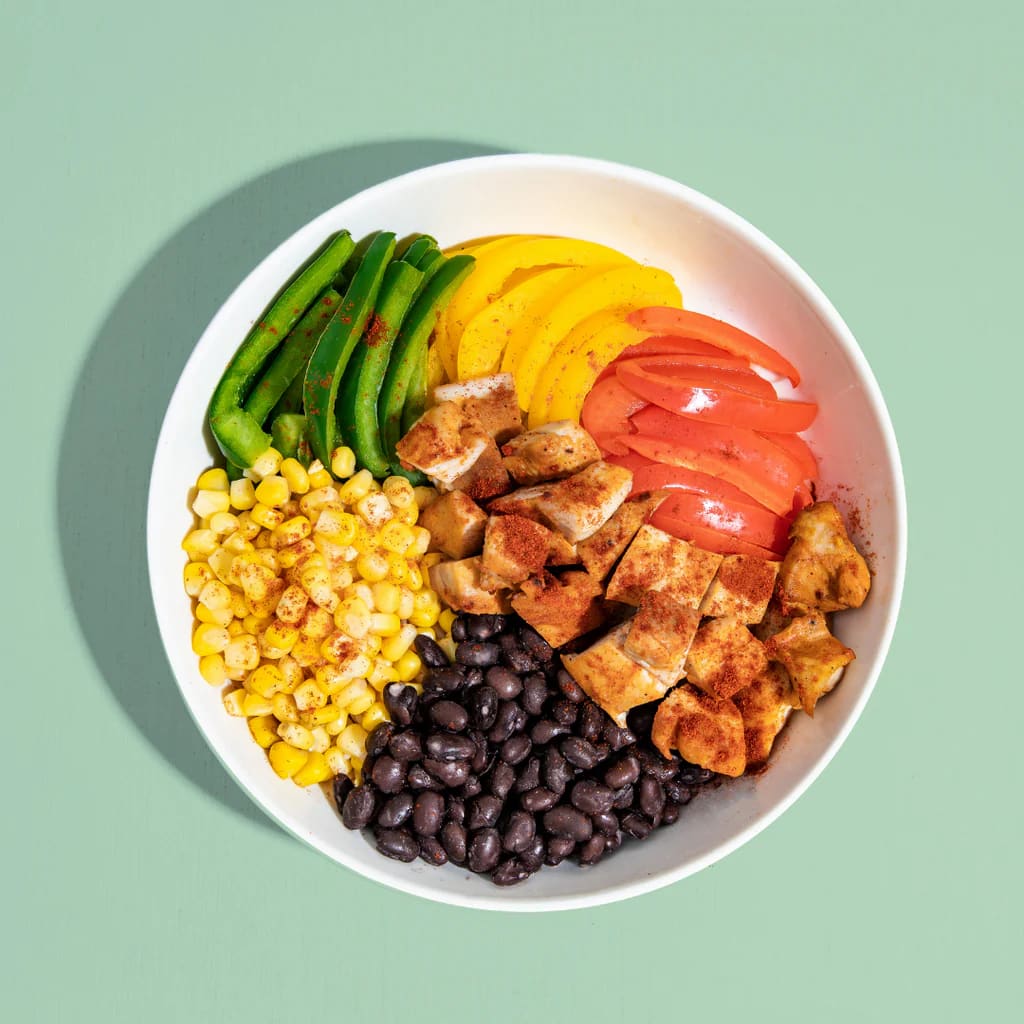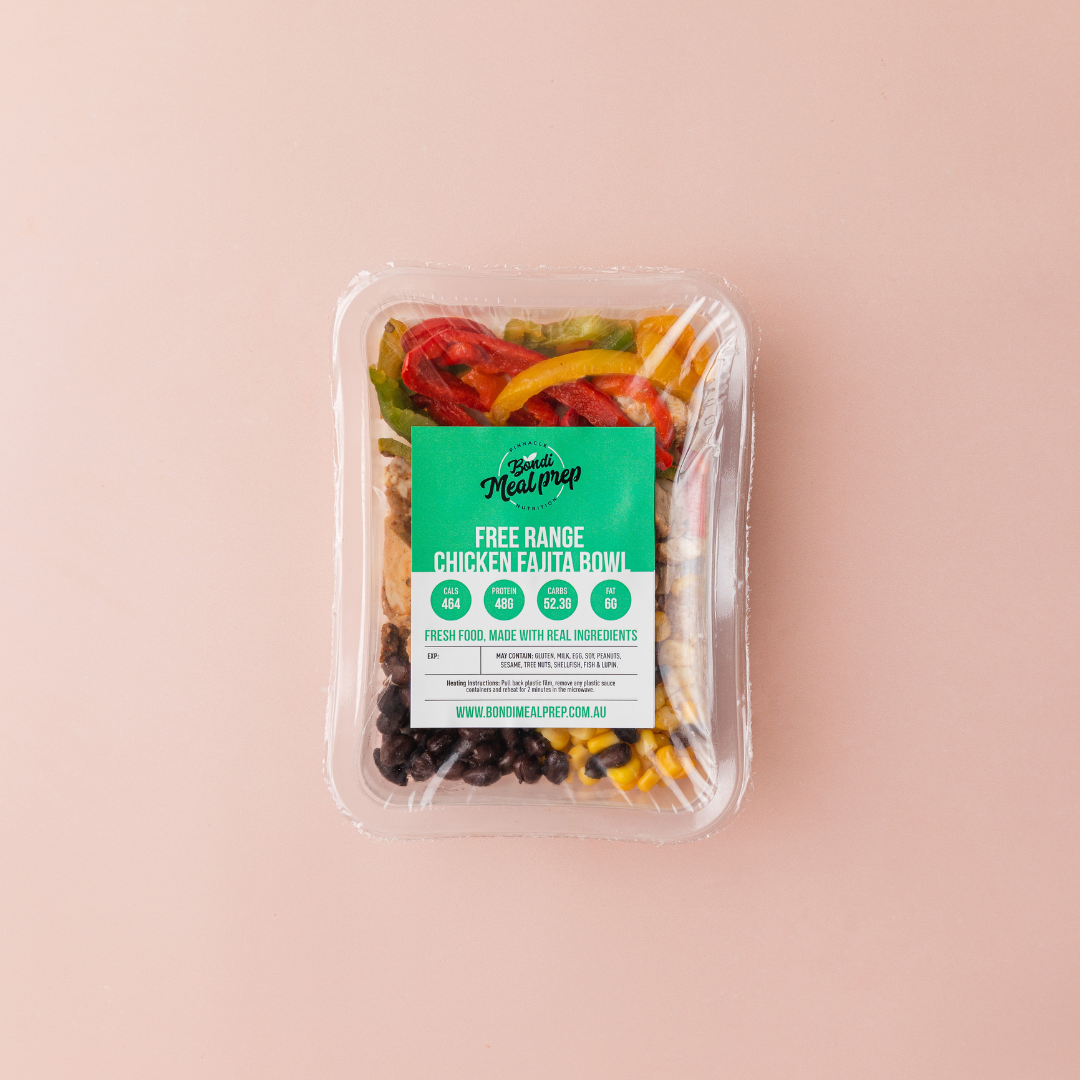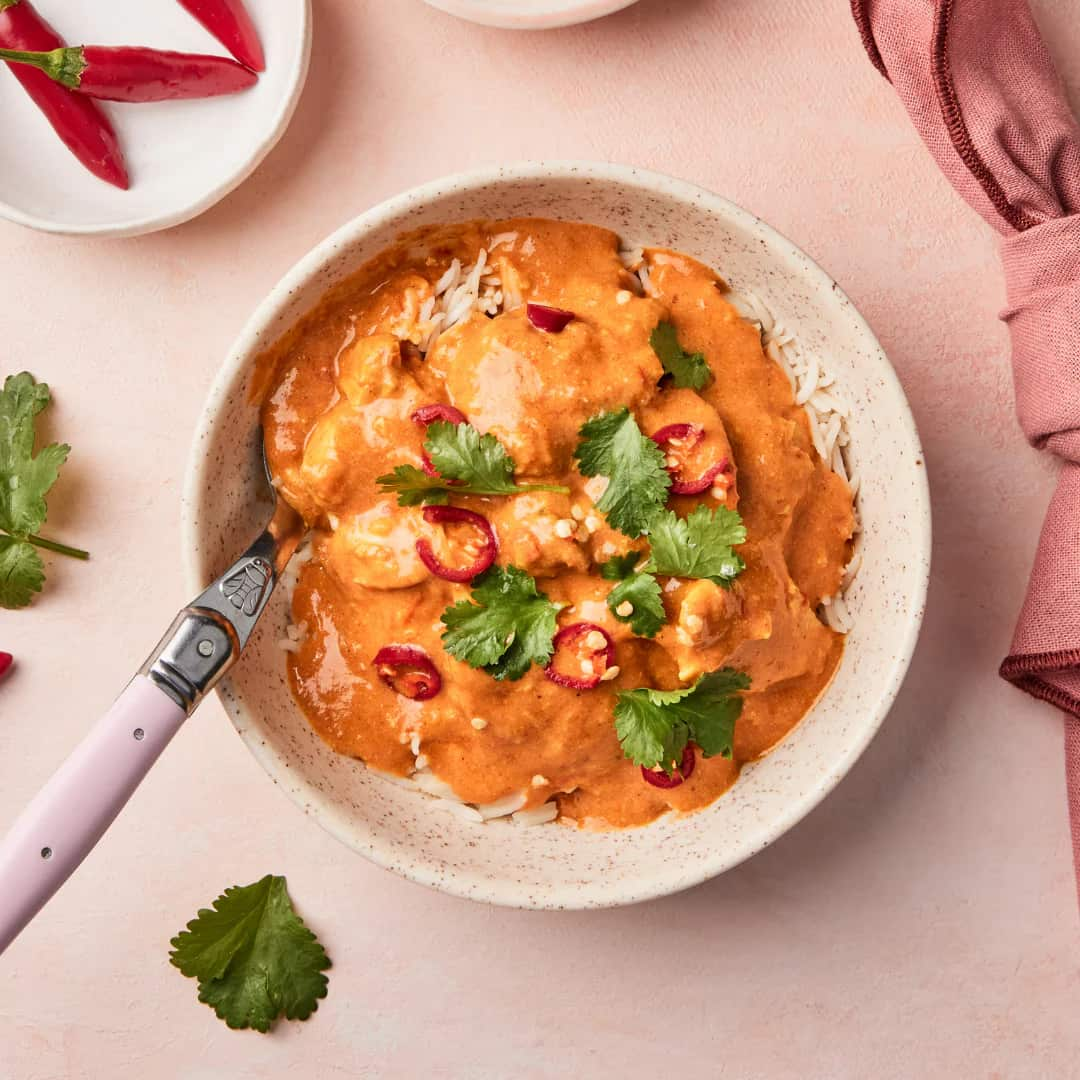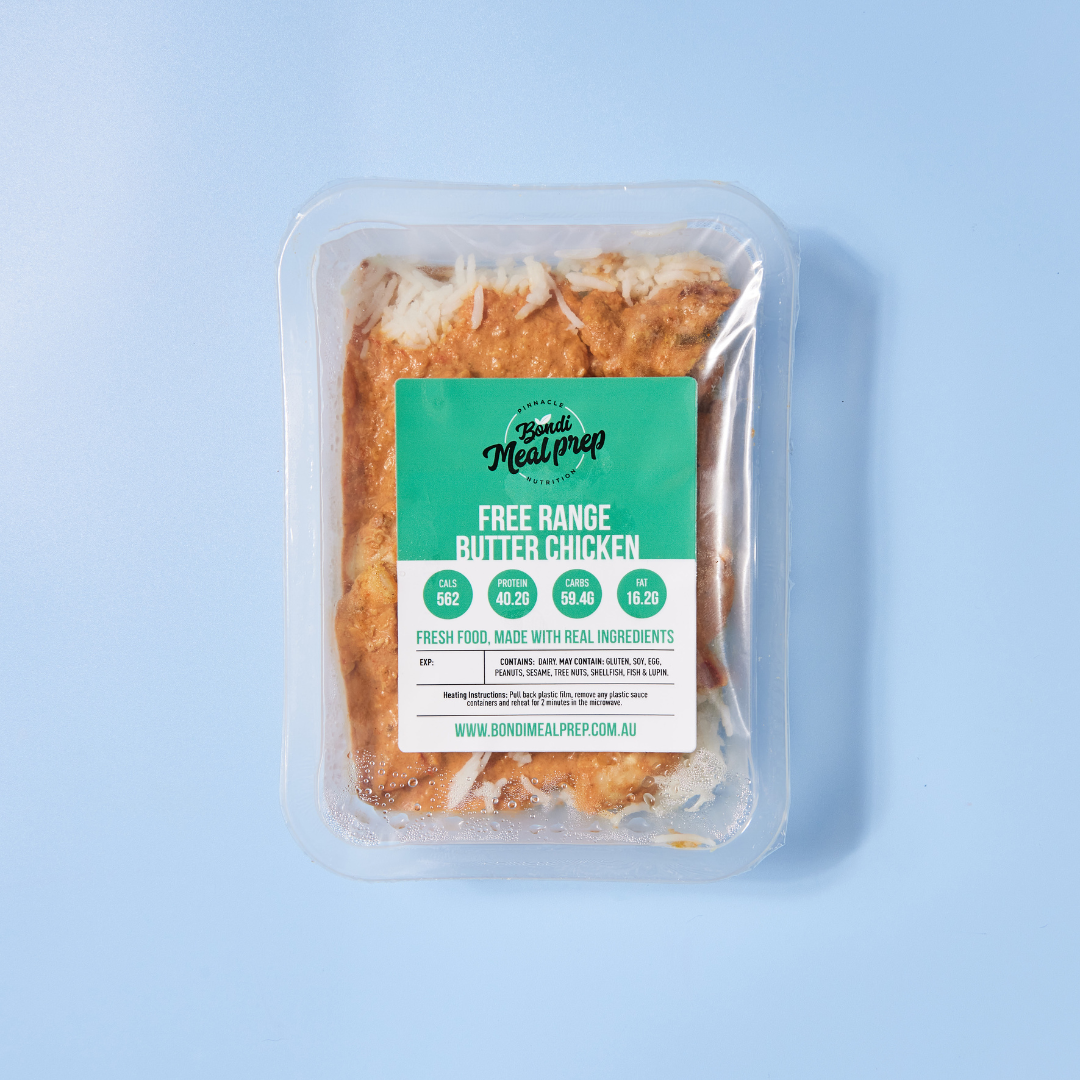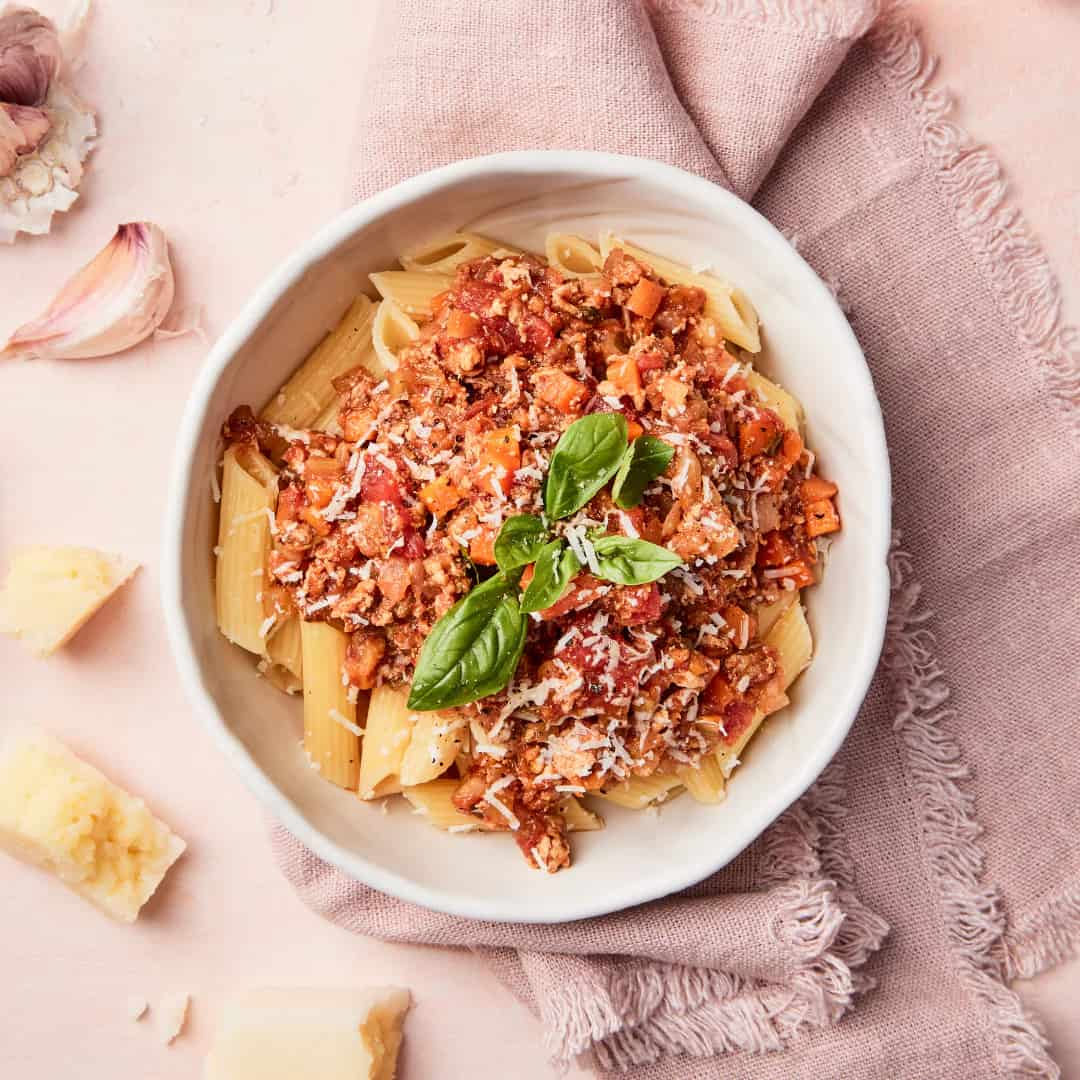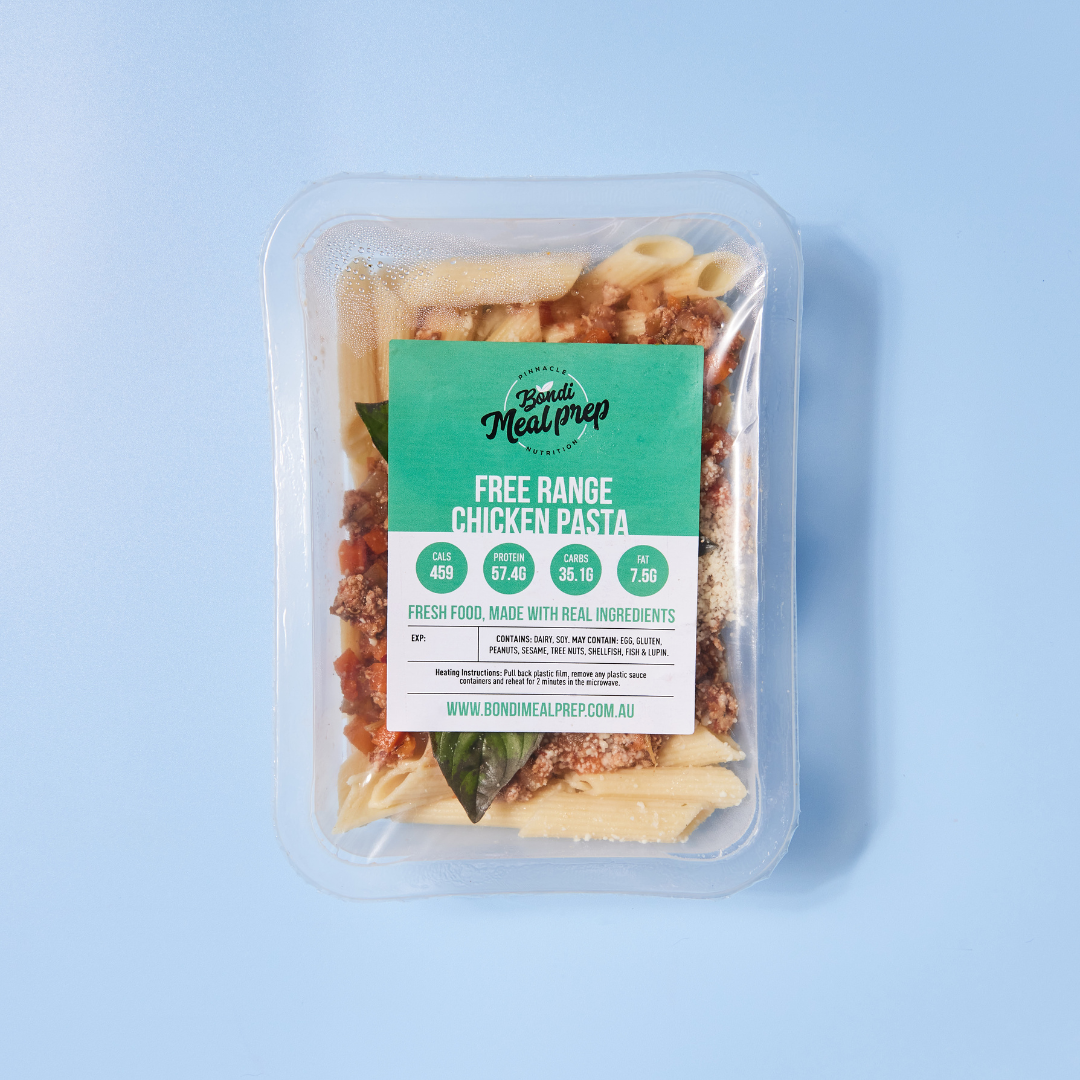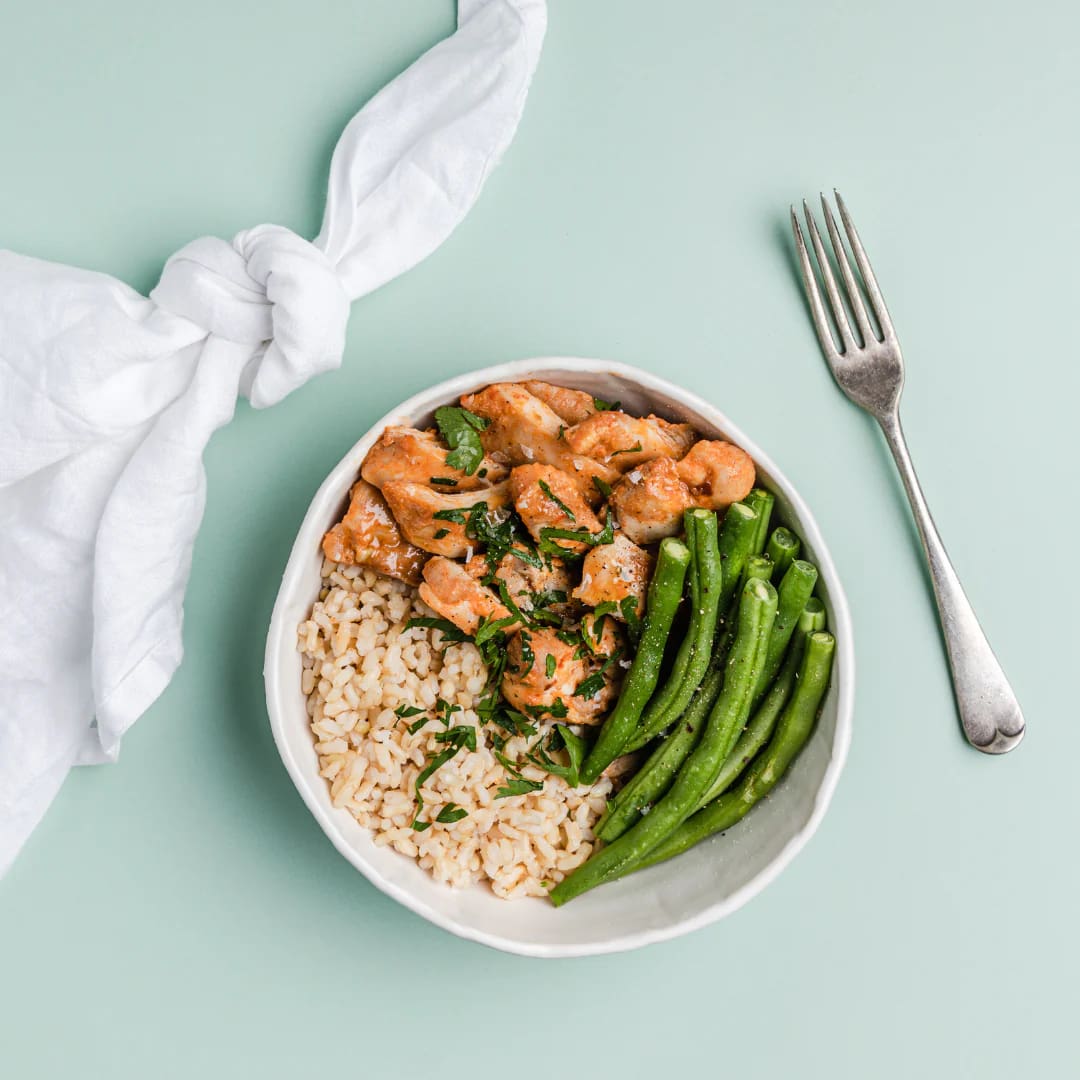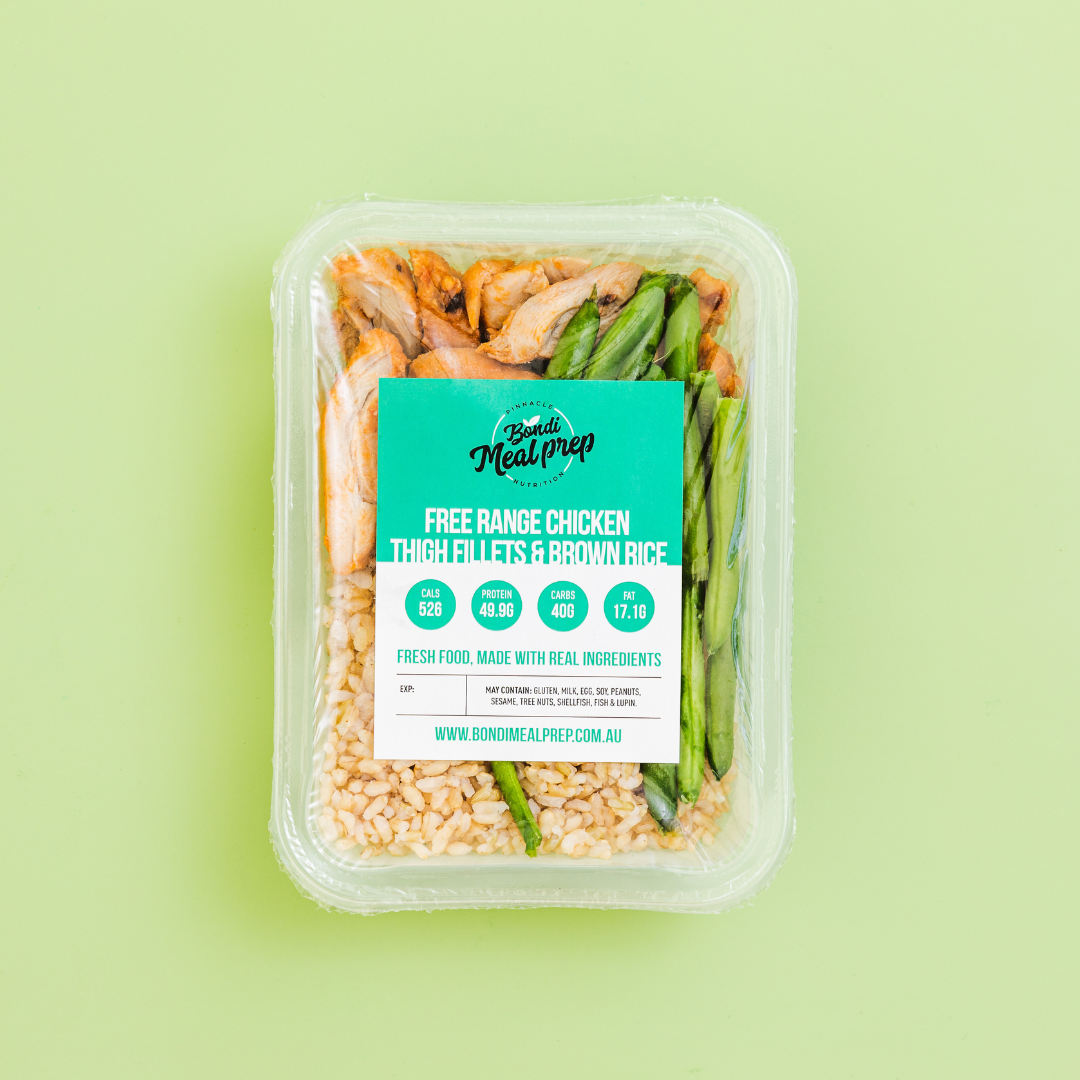Losing weight while staying true to halal can feel like a juggling act, but it doesn’t have to be. With the right mix of whole foods and practical strategies, you can achieve your goals without compromising on faith or flavour. Bondi Meal Prep’s nutrition experts have put together this guide to show you how to make a halal lifestyle an integral part of your weight loss journey.
Key Takeaways
-
Eating halal while losing weight is not only possible, it can be simple and enjoyable with the right planning.
-
Build your meals around lean halal proteins, whole foods, and smart portions to stay full and on track.
-
Halal meat brings extra benefits, offering lean cuts, rich nutrients, and cleaner preparation standards.
-
Bondi Meal Prep makes dieting more achievable by offering halal-friendly meals that deliver flavour, convenience, and optimal nutrition.
Balancing Faith, Food & Fitness
You want to eat halal. You also want to lose weight. You care about faith, health, time, and taste. Some days, balancing all these demands feels easy. Other days, not so much. Work runs late. The only thing in the kitchen cupboard is a cobweb. Your old pal Uber Eats whispers your name.
The good news is that you don’t need to choose between health and halal. With the right mix of structure, flexibility, and flavour, halal eating can be part of your weight loss journey. Rather than hindering you in your quest to shed a few pounds, halal can be your trusted ally.
Our experts have compiled this guide to walk you through the key principles of balancing healthy eating with a halal diet. We’ll give you practical meal ideas, some handy nutritional tips and tricks, and even show you how Bondi Meal Prep’s pre-prepared meals can take the stress out of meal times and make it a breeze to stay consistent.
By the end, you’ll see that eating halal while losing weight is not just possible, it can actually be lip-smackingly tasty and surprisingly simple.
What Makes a Meal Halal?
Before diving into the details of weight loss, it’s worth taking a step back to examine what halal really means.
At its core, the halal diet is about food that’s permissible under Islamic law. Pork, alcohol, and blood are off the table, and meat must be processed in a specific way that respects both faith and the welfare of the animal. Keeping halal food separate from non-halal in preparation is also essential to preserve its status.
These rules might sound restrictive, but in reality, a halal pantry is vast and versatile. Fresh fruit, vegetables, fish, legumes, grains, and properly prepared poultry and beef all fit within halal guidelines. Luckily, this means it’s possible to whip up colourful, nutrient-dense meals without ever feeling deprived.
The Key Principles of Halal Weight Loss Meals
Weight loss doesn’t need to mean harsh restrictions or complicated rules. What matters most is building meals around a few steady principles that make sense for your body and your lifestyle. These three principles keep things simple, practical, and flexible enough to work long term.
1. Balance your plate. Aim for meals that bring together the right ratio of lean halal proteins, healthy fats, and complex carbs. A simple guide is half a plate of vegetables, a palm-sized portion of protein, a thumb of healthy fats, and a cupped hand of carbs.
2. Practice portion awareness. You don’t have to count every calorie forever (phew!), but having a sense of how much you are eating makes a big difference. Use pre-portioned meals or even a weighing scale at first. Over time, creating portion-controlled meals will become second nature.
3. Choose whole foods. Base your meals on ingredients your grandparents would recognise. Choose fresh meat, wholegrains, and vegetables. Avoid packaged snacks, fatty ready meals, or sauces packed with sugar. Clean and simple additions like olive oil, nuts, herbs, and spices help keep flavour high and processed ingredients low.
The Nutritional Science, Simplified:
Weight loss comes from being in a state of calorie deficit (burning more calories than you consume). Protein is helpful because it takes more energy to digest than carbs or fat, boosting the calories you burn. Fibre makes you feel full and helps control your appetite, which makes it easier to avoid overeating.
Practical Meal Ideas
The theory of dieting is useful, but what really matters is what ends up on your plate. Building a week’s worth of meals that are both nutritious and enjoyable to eat shouldn’t seem like an impossible feat. With a few go-to menu options, you can keep things tasty and on track.
High-Protein Halal Breakfasts
-
Shakshuka with extra egg whites, served with half a wholemeal pita
-
Greek yoghurt with berries, tahini, and a sprinkle of cinnamon
-
Omelette packed with spinach, mushrooms, and a little feta
Light and Energising Lunches
-
Grilled chicken wrap with hummus, salad, and lemon
-
Chickpea and quinoa bowl topped with roasted vegetables
-
Tuna salad with leafy greens, olives, and fresh herbs
Satisfying Dinners
-
Baked salmon with roasted sweet potato and green beans
-
Halal beef stir-fry with tamari and brown rice
-
Spiced chicken thighs with cucumber tomato salad and mint yoghurt sauce
Smart Snacks
-
Dates with almonds
-
Boiled eggs with paprika
-
Hummus with carrot and celery sticks
-
Cottage cheese with chives
It sounds simple, but the trick is to prep once and eat many times. Roast a whole tray of chicken, cook a pot of quinoa, chop a rainbow of vegetables, and whip up a tub of tahini dressing. Suddenly, your lunches and dinners almost make themselves.
The Nutritional Science, Simplified:
Low-GI carbs like quinoa and legumes keep blood sugar steady. Protein spread across meals helps protect lean muscle while you’re losing weight. Omega-3s in halal fish not only support heart health but also help you feel satisfied after meals.
The Health Benefits of Halal Meat
For many people, halal meat feels like just another option at the butcher or supermarket. But there are real health benefits worth considering, especially if you’re trying to eat for weight loss.
Halal poultry and beef often come from leaner cuts and are processed in a way that reduces retained fat. That means you get more protein per bite, which is exactly what you want when trimming calories.
Halal meat is also naturally rich in iron, zinc, and B vitamins. These micronutrients keep your energy levels up and support everything from your immune system’s health to recovery after exercise.
Another factor is quality. Halal preparation involves strict rules around handling and processing, reducing the presence of hidden additives, antibiotics, or hormones. For anyone concerned about long-term health, halal meat offers a clear advantage.
The Nutritional Science, Simplified:
The iron and B12 found in meat support oxygen transport around your body, which can reduce feelings of fatigue while you’re in a calorie deficit.
Cultural Flavours that Support Weight Loss
One of the joys of halal eating is the variety of cultural flavours that come with it. You don’t need to strip meals back to plain chicken and steamed broccoli to lose weight. By leaning into spices, herbs, and traditional recipes, you can enjoy rich taste without piling on calories.
Middle Eastern staples like za’atar chicken, lentil soup, and shawarma-spiced beef are naturally light yet full of flavour. Asian halal meals often use fresh vegetables and lighter cooking methods, such as stir-frying or steaming..
If you’re searching for culinary inspiration, a few kitchen tricks go a long way. Toast your spices to deepen the flavour. Add zesty lemon or vinegar to brighten a dish. Use mint, coriander, or parsley for an aromatic freshness. These small twists create meals you actually look forward to eating. And when it comes to sticking with a diet long-term, meal enjoyment is everything.
The Nutritional Science, Simplified:
Spices like chilli contain a compound called capsaicin, which can increase your metabolism. Herbs and lemon reduce the need for salt, lowering your sodium intake and supporting heart health while making meals more flavoursome.
How to Plan & Prep a Week’s Meals
Weight loss doesn’t collapse because of one sneaky doughnut. It falls apart when you don’t have a plan. The good news is that planning doesn’t need to be overly time-consuming or exhausting.
Start with a rhythm you can repeat. Pick three halal proteins for the week, choose two carb bases, rotate three veg mixes, and prep two sauces. This keeps your meals balanced without drowning you in choice. Batch cook when you can, and portion things into containers for grab-and-go convenience.
When eating out, look for grilled meats or fish, swap chips for salad, and always ask for the dressing on the side. Having a social life doesn’t need to undo all your good work. And if the week runs away from you, having Bondi Meal Prep meals in the fridge can save you from hitting ‘Order Now’ on the takeaway website.
The Nutritional Science, Simplified:
Meal prepping reduces reliance on impulsive food choices and helps with long-term adherence. Rotating proteins and vegetables boosts micronutrient coverage, ensuring you don’t miss key nutrients like iron, zinc, calcium, and vitamin C.
Bondi Meal Prep & Halal-Friendly Eating
Even with the best intentions, there are times when life’s pressures can threaten to derail your diet. A deadline means you’re leaving the office late. Family commitments stack up. The supermarket seems a million miles away. That’s when Bondi Meal Prep can take the load off your shoulders.
All our nutritionist-approved meals are made with certified halal proteins and paired with whole ingredients in carefully balanced portions. If you need more protein one day, fewer carbs the next, or just something new and inspiring to try, we have options just for you.
At Bondi Meal Prep, halal is not just a label. It’s something we take seriously. All the proteins we use come from halal-certified suppliers, and while the meals themselves are not certified as a whole, we’re open about our sourcing. Just email us at hello@bondimealprep.com.au and we’ll happily share our supplier certifications.
With our halal-friendly meals, you always know exactly what you’re eating: just clean, simple food that feels as good as it tastes.
Frequently Asked Questions
Can you lose weight on a halal diet?
Yes, weight loss is possible on a halal diet. The key factor is maintaining a calorie deficit by balancing lean halal proteins, complex carbs, and healthy fats. Whole halal foods like chicken, fish, legumes, and vegetables will make you feel full and make it easier to control portions.
What are the best halal protein sources for weight loss?
The best halal protein sources for weight loss include skinless chicken breast, lean beef, lamb, fish, and eggs. Plant-based proteins such as lentils, chickpeas, and beans also provide an excellent source of fibre. These proteins build muscle, regulate appetite, and help preserve lean mass while losing fat.
How do I plan halal meals for weight loss?
Planning halal meals for weight loss starts with having a simple structure. Choose three proteins, two carb bases, and a mix of vegetables for the week. Batch cooking and portioning meals in advance can reduce impulsive eating and support calorie control. Using meal delivery services like Bondi Meal Prep can also help you stay consistent.
Are halal meal delivery services good for dieting?
Yes, halal meal delivery services are often very effective for dieting. Pre-portioned meals improve calorie accuracy, balance macronutrients, and reduce reliance on fast food. Services like Bondi Meal Prep can provide certified halal proteins in weight-loss-friendly meals that balance nutritional needs with convenience and taste.


